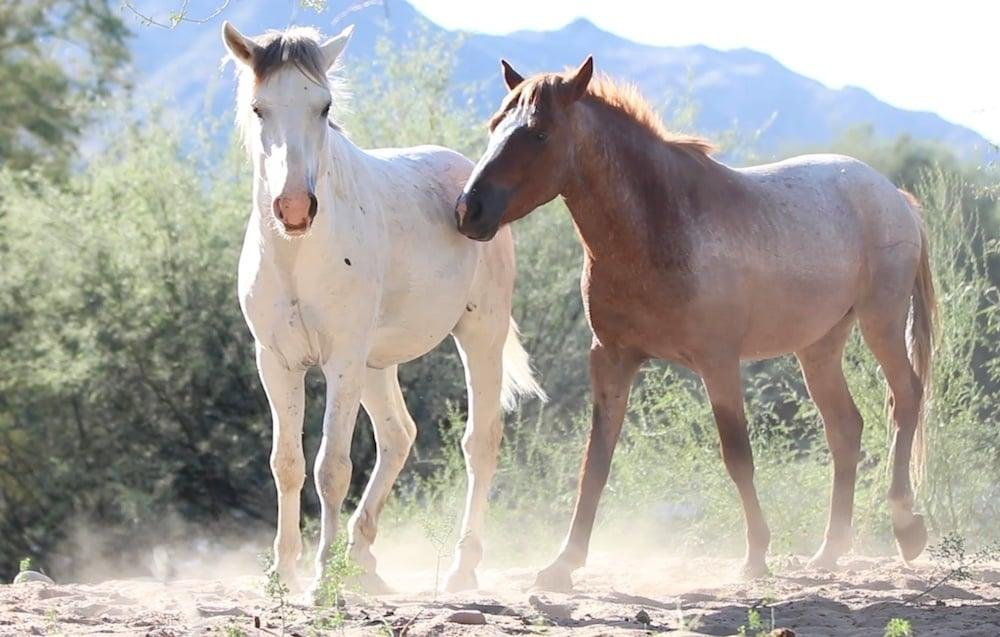Business
Judge Greenlights Controversial Arizona Horse Auction

A federal judge has ruled against blocking the sale of 13 horses found in the Apache-Sitgreaves National Forest, despite legal action from wild horse advocates. The U.S. Forest Service planned to auction these horses in Texas, claiming they originated from nearby ranches and are therefore classified as feral. However, advocates argue these animals are descendants of centuries-old Spanish Barb horses.
The Salt River Wild Horse Management Group sued to prevent the auction, alleging the Forest Service failed to properly notify the public. Initially, U.S. District Judge Susan Brnovich temporarily halted the auction with a restraining order. This was soon lifted by another judge who deemed the plaintiffs’ arguments unlikely to succeed.
“We are disappointed that the TRO was lifted because the USFS is shipping Arizona wild horses to kill pens in Texas is unconscionable,” remarked Simone Netherlands, president of the Salt River group. Federal guidelines mandate the Forest Service to issue public notices before rounding up and auctioning livestock found on federal lands. These include a 15-day notice before impoundment and a five-day notice detailing the auction specifics.
The Salt River group claims these requirements were breached and sought to halt the auction indefinitely. The group often buys horses at such auctions to rehome them, preventing them from falling into the hands of “kill buyers” who could send them overseas for slaughter.
U.S. District Judge John Tuchi acknowledged a violation in the service’s notice procedure but declined to issue a preliminary injunction. The forest service had issued a general notice on December 15, 2023, covering a 12-month period, rather than specific notices for individual roundups. Tuchi ruled this approach aligns with the Administrative Procedures Act, so long as the service waits the stipulated 15 days.
On another point, Tuchi found the descriptions of the horses met the required statutory criteria, despite their lack of specificity. The service’s notice had listed the horses as “of both genders and varying age classes and colors,” which Tuchi noted covers all horses without requiring more detail. He acknowledged this makes fundraising and adoption efforts harder for advocates but doesn’t violate the regulation.
Tuchi did find the service’s failure to provide a specific auction date and time insufficient but ruled that this does not constitute irreparable harm. Consequently, the Forest Service needs to give an additional five-day notice before selling the horses. This stipulation gives advocates time to raise funds and find homes for the animals.
Regarding environmental impact, the Forest Service’s removal of horses, known as the Alpine herd, began at the behest of the Center for Biological Diversity and other conservation groups. These organizations argue that the horses are damaging native ecosystems. Since 2022, 467 horses have been removed from the forest, with the Salt River group purchasing 392 of them. The fate of the remaining horses remains uncertain, with advocates suggesting some may have been slaughtered, although this is unproven.
Current estimates suggest around 200 horses remain in the Apache-Sitgreaves, not accounting for their rapid reproduction rates, which could double the population in just four years. The fate of these horses remains a contentious issue, balancing environmental concerns with animal welfare.
















